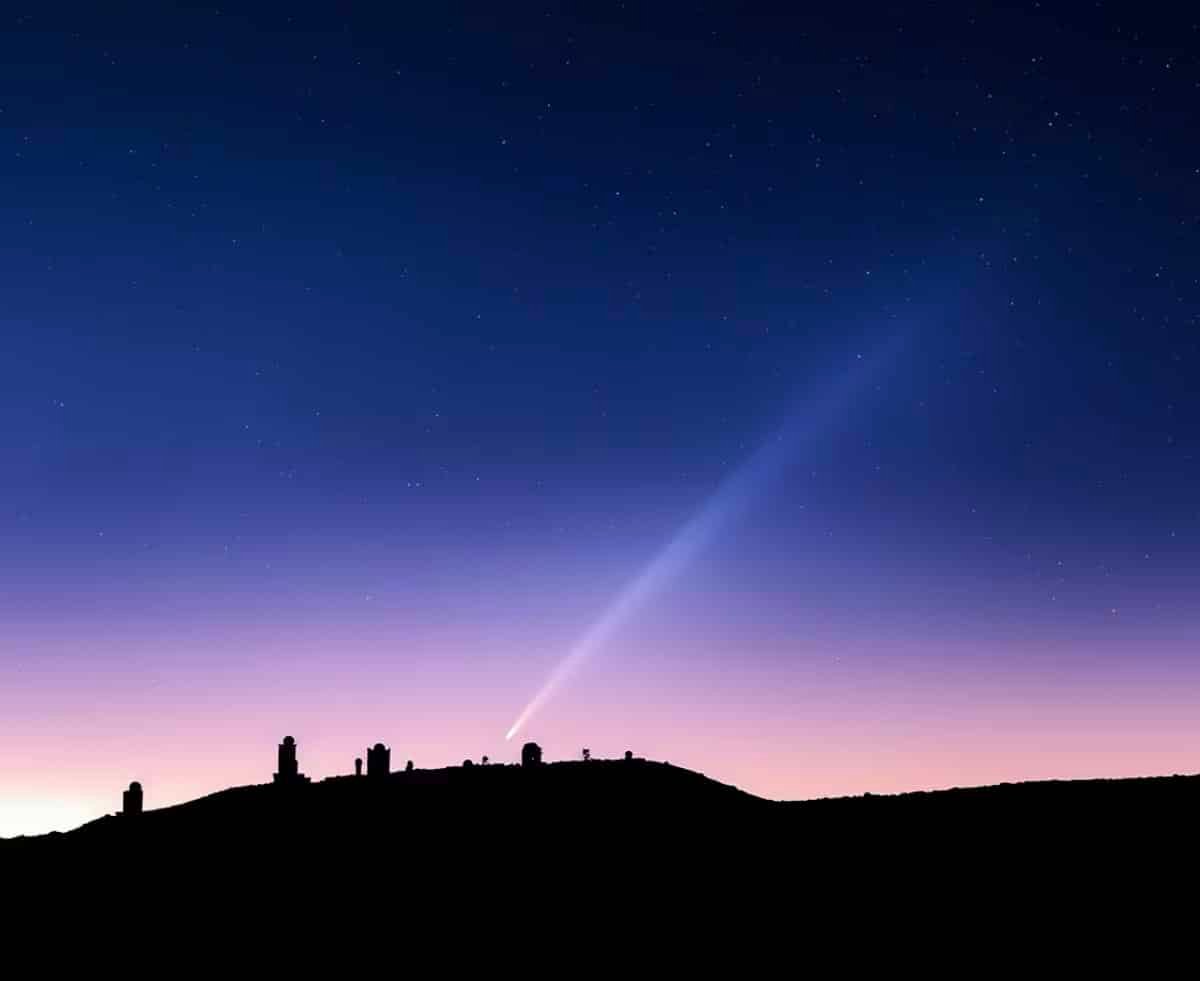Comet won’t be seen again for 80,000 years…
Experts warn “the window of opportunity will be very short”, but at around 7.30pm this evening a super rare comet should be visible to the naked eye in Portugal’s skies.
C/2023 A3 Tsuchinshan–ATLAS is in fact being dubbed “the comet of the century”.
It is currently at its closest point to Earth and “will not be repeated for millennia”.
As Euronews has explained: “The universe is offering us a unique spectacle (…) this fascinating celestial body is causing a sensation among professional astronomers and amateurs alike.
“Experts estimate that its last visit to the inner solar system took place around 80,000 years ago, at a time when Neanderthals still populated the Earth.
“Discovered in January 2023 by a collaboration between observatories in China and South Africa, Tsuchinshan-ATLAS has captured the public’s imagination due to its exceptional brightness and unusual trajectory.
“According to Javier Licandro, one of the leading astronomers at the Canary Islands Astrophysics Institute, Tsuchinshan-ATLAS currently shines ‘much brighter than Mercury’, one of the brightest planets in our night sky. This puts it in a league of its own, rivalling historical comets such as Hale-Bopp and Hyakutake.
“The comet’s impressive tail, which stretches over 42 full moons, is a visual spectacle that few astronomical phenomena can match. This tail, made up of gas and dust, is formed when the Sun’s heat causes the comet’s icy materials to sublimate, creating a luminous trail that extends millions of kilometres into space”.
C/2023 A3 Tsuchinshan–ATLAS has already been seen in other parts of the world this weekend: Portugal’s turn being put at exactly 7.35pm (but it would be safe to start looking out at 7.30pm…)
“This astronomical event coincides with a period of intense solar activity, which has allowed the aurora borealis to appear at unusually low latitudes, including regions of the Iberian Peninsula”, adds Euronews. “Although it is unlikely to see the comet and the aurora at the same time, the possibility of witnessing both phenomena on the same night adds an extra attraction to night-time observation sessions”.
In Coimbra one such session will be being held between 7.20pm and 8pm this evening. Astrophysicist Nuno Peixinho has told Lusa that the comet at this point will be almost “71 million kilometres from the Earth and just over 82 million kilometres from the Sun, when ‘the average distance from the Earth to the Sun, called the astronomical unit, is around 150 million kilometres”.
Next week it may well be possible to catch sight of the comet – but only with the help of a telescope.
One important factor of tonight’s viewing will be cloud cover: if there is too much of it, the effect of this comet could be a great deal less awe-inspiring.
Sources: Lusa/ Euronews




















